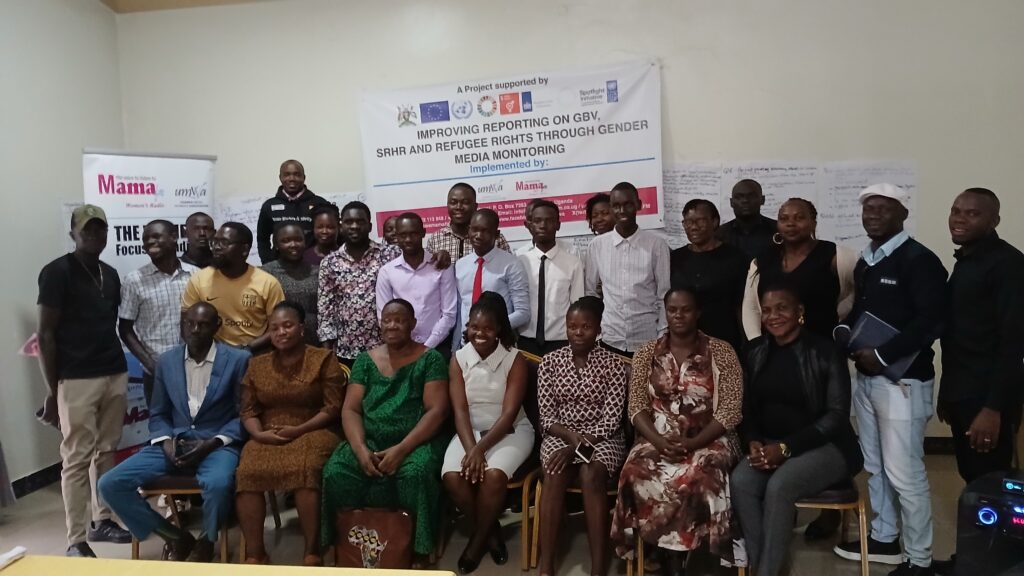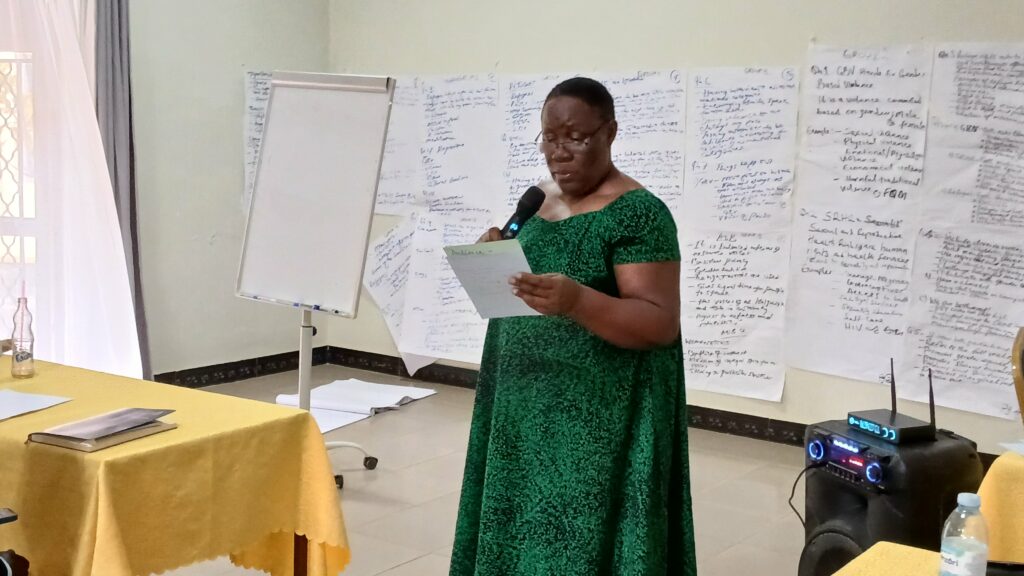Arua Scribes Urged To Embrace Gender-Sensitive Reporting

Group Photo of journalists and the Team from UMWA after the two day Training
ARUA CITY: Journalists in Arua City have been encouraged to adopt gender-sensitive reporting, prioritizing accuracy, fairness, and balance to promote inclusivity.
The call was made during a two-day capacity-building workshop on reporting Gender-Based Violence (GBV) and Sexual Reproductive Health and Rights (SRHR), organized by the Uganda Media Women’s Association (UMWA).
The training concluded on Tuesday, July 22, 2025, at Tropical Suites Hotel in Arua City.
According to the Uganda Bureau of Statistics (UBOS) report on Gender Equality, the Government of Uganda recognizes gender equality as both a human right and a cornerstone of sustainable, inclusive development.
This commitment is reflected in gender-responsive legal and policy frameworks aimed at reducing inequalities and vulnerabilities across social, political, and economic spheres.
However, gender bias persists in media coverage of GBV, SRHR, and refugee issues, often further marginalizing and traumatizing victims.
In her closing remarks, UMWA Executive Director Margaret Ssentamu urged journalists to enhance the quality of their work by embracing inclusivity in all reporting.

“I appreciate your time and insightful contributions,” she said.
“All stories should be gender-sensitive. There’s no such thing as a ‘gender story’—every story should be written with a gender-sensitive approach.”
Joan Onen, a radio presenter at Radio Pacis, expressed enthusiasm about the training, noting that the skills and knowledge gained would improve reporting quality.
“I feel empowered, and I see many of us here are energized too,” she said.
“This training has been enriching, with knowledge shared across media houses like Voice of Life, Arua One, and Access FM. We’re ready to apply these lessons and share them with our colleagues for better, more balanced reporting.”
West Nile Online’s Benjamin Matata also an Award-winning journalist, highlighted the training’s value in equipping participants with skills for impactful storytelling.
He urged UMWA to provide grants to support journalists in pursuing gender-focused stories and expanding inclusivity coverage.
“We are enlightened and equipped to report on gender-sensitive issues,” he said.
“To sustain this momentum, UMWA could consider offering small grants to motivate journalists to extend this work beyond the workshop,” Matata appealed.
Gender inclusivity goes beyond diversity—it fosters an environment where individuals of all genders feel valued, respected, and empowered to contribute their unique perspectives.